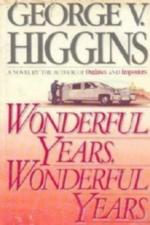|
This section contains 425 words (approx. 2 pages at 300 words per page) |

|
Higgins's rejection of the crime novelist label may serve as a starting point for measuring his achievement. The label is not inherently demeaning. Moll Flanders (and several of Defoe's other novels) and Crime and Punishment are certainly crime novels. Higgins may not yet have written a Crime and Punishment, but his novels are certainly more ambitious than those of the generic crime novel, even of the very good generic crime novel (such as Burnett's Uttle Caesar or High Sierra). In his techniques and in his examination of his central themes, Higgins aims high. Are his aims high enough? Does he accomplish his goals? In what ways does Higgins achieve more than Burnett? In what ways does he fall short of Dostoevsky?
1. Why does Higgins use Eugene Arbuckle as the main voice in the narrative? What are Arbuckle's principal strengths and weaknesses? How does Higgins reveal these...
|
This section contains 425 words (approx. 2 pages at 300 words per page) |

|




